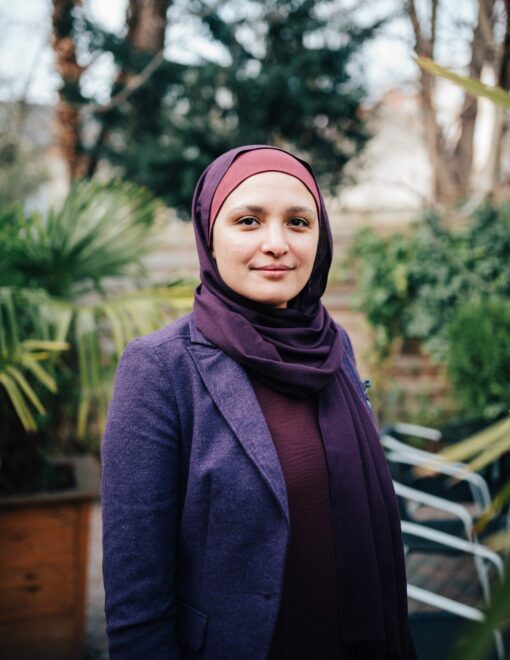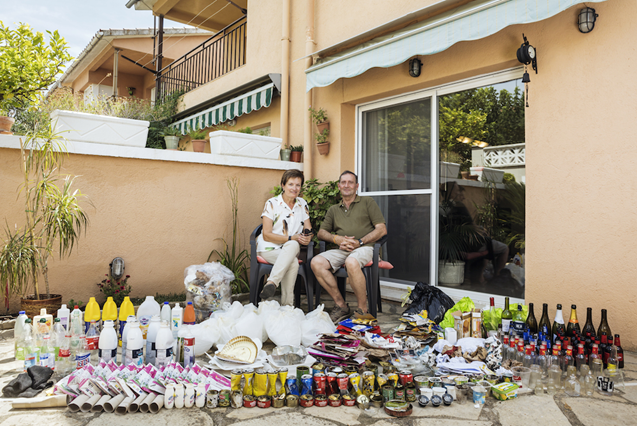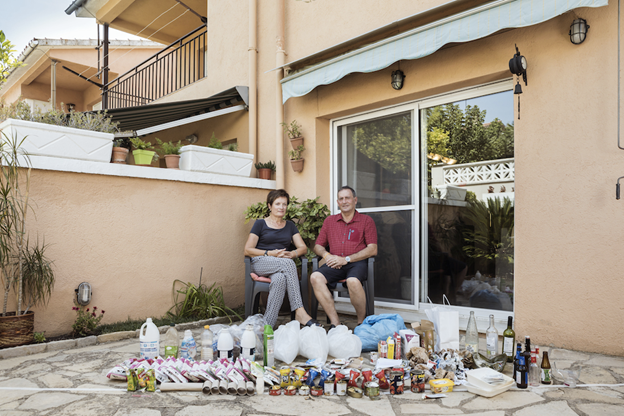
Thinking outside the circle: when circularity meets sufficiency
Over the last decade, the concept of the Circular Economy (CE) has gained widespread popularity as a framework for waste reduction and management. The CE approach aims to close the loop by reusing and recycling materials, which reduces the demand for virgin materials and decreases pollution. This perspective has facilitated the adoption of the CE framework in both business and policy arenas, and it has become a key element of industrial sustainability.
Yet, despite the success of many CE initiatives, we are still far from reversing the trend of overconsuming our resources. According to the Circularity Gap Report 2023 by Circle Economy, the global circularity indicator is only at 7.2%, two points lower than five years ago. In the past six years, “the global economy extracted and used more [resources] than in the entire 20th century.” This alarming trend highlights the need for policies and business initiatives that are deeply rooted in the reduction of resource use.
One common criticism of the CE – as designed and implemented today – is that it focuses too much on recycling over “refuse, reduce, and rethink” strategies. By not prioritising or emphasising upstream waste reduction strategies, most initiatives in the current production system still focus on incremental resource use optimisation strategies, instead of challenging the continued use of resources overall.
Unfortunately, optimising a broken system does not fix it. In the end, all we achieve is a slightly faster/cheaper/less resource-intensive… but no less broken system.
In this context, the CE may simply keep enabling a culture of consumerism and waste, further fueling inequalities and resource depletion. Addressing this requires a shift in our current systems of production and consumption, which can be facilitated by embracing a sufficiency-based Circular Economy.
Sufficiency as a core principle of zero waste strategies
Sufficiency refers to the policies and daily practices that avoid demand for energy, materials, land, and water while delivering human wellbeing within planetary boundaries, as defined in the 2022 IPCC report.
Zero waste strategies are the operationalisation and living embodiment of such a sufficiency-based circular economy. Zero waste aims to eliminate waste at the source by redesigning products and systems, promoting sustainable consumption patterns, and reducing overall resource use. This approach prioritises waste prevention over waste management, recognising that the best waste is the waste that never gets created in the first place.
More importantly, zero waste, both as a political vision and a practical roadmap, requires rethinking our current systems of production and consumption, while encouraging community-driven, people-powered initiatives and decentralised models.
We are currently facing an imagination crisis. We struggle to envision how we could “make do with less”, and how this could contribute to social welfare and wellbeing (and even make economic sense). However, there are countless stories and examples within the zero waste movement proving that not only is another path possible, it also pays off in terms of waste reduction, while weaving the social fabric and building healthy local economies.
Drawing inspiration from zero waste communities
While zero waste as a concept was first developed in the early 1980s, the zero waste movement has gained momentum in the past 15 years, with tens of thousands of individuals and hundreds of municipalities adopting the lifestyle and achieving significant waste reduction and cost savings.
Municipalities which lacked the competences of collection and treatment saw the opportunity to act on the waste generation on their territory. This is the case of Roubaix, a Northern town in France, which is considered one of France’s poorest cities due to its desindustrialisation and subsequent high level of unemployment.
The municipality launched a Zero Waste Families initiative in 2014 (still in operation), which has achieved an overall 47% waste reduction and a €1000 savings per household. This initiative has not only had environmental benefits and cost savings but also contributed to the revitalization of the local economy as business and solution providers has since flourished in the territory.

Another example of a Zero Waste Family programme, I am a Conscious Consumer, an award-winning campaign from our member organisation Rezero, 2017.
Before the zero waste lifestyle.

After a month of adopting new zero waste practices. I am a Conscious Consumer, an award-winning campaign, from Rezero, 2017.
“With this campaign, not only we can change people’s habits, but we can also see the legal gaps that we need to work on to improve the environmental and waste legislation.” Rosa García, Director General of Rezero
Such initiatives only exist thanks to the leadership of local decision-makers and civil society groups, and still count on citizens who join a voluntary scheme to adopt a new lifestyle. Yet, doing the right thing should be easier, cheaper and more appealing. To achieve widespread change, individual actions such as practising zero waste must be complemented by supportive policies and infrastructure.
By implementing policies and initiatives that prioritise the reduction of resource use and a fairer distribution of resources, we can work towards a more desirable, livable, and sustainable future for all, where nothing and no one is disposable.
In conclusion, while the Circular Economy provides a useful compass for resource use optimization, we should keep our eyes on the destination (and not the compass itself), which is: the integration of a planned reduction of resource use, combined with addressing inequalities and improving collective wellbeing.
By prioritising “refuse, reduce, and rethink” strategies over recycling and embracing sufficiency-based approaches like zero waste, we can challenge our current systems of production and consumption and work towards a more sustainable future. More than ever, we need to think outside the circle.
Additional reading
ZWE’s manifesto “New Energy for Europe” calling for a new European project based on resilience, sufficiency, and wellbeing, November 2022.